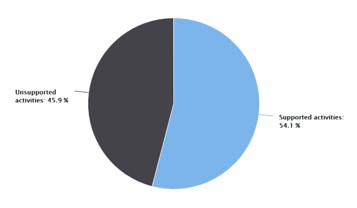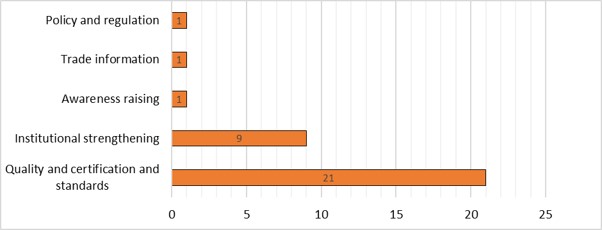The goal of Sri Lanka’s National Quality Infrastructure (NQI) Strategy is to set quality-related functions on a course to provide high-performance services that allow small and medium-sized enterprises (SMEs), larger companies and exporters to comply with market requirements. It equally aims to build capacities, support the enforcement of Sri Lankan regulations, assist environmental sustainability and ensure consumers are protected through access to quality and safe goods.
The NQI Strategy originates from the need to implement the National Quality Policy (NQP) of Sri Lanka. All key NQI institutions, the private sector, relevant Government institutions and civil society (representatives from universities and technical and vocational education and training institutions) were involved in the consultative and inclusive design process to ensure the final document reflects their diverse ambitions and is fully implementable for the benefit of Sri Lanka.
If the prosperous future that Sri Lanka desires –with good governance; rule of law; and inclusive, sustainable economic development based on international trade – is to be achieved, better quality-related services are essential. Improved business opportunities, better standards of living and improved quality of life require a strong capacity to identify, establish and effectively assess the characteristics of products, processes, systems and services. In order to build that capacity, this Strategy streamlines the implementation of the NQP, responds to the emerging compliance needs of Sri Lankan enterprises, and establishes a clear way forward for all institutions and partners of the NQI.
The following vision and strategic approach will guide the way for a well-established and effectively functioning NQI. This vision statement and strategic arrangement were agreed by key NQI stakeholders of Sri Lanka.
“A national quality infrastructure at the service of socioeconomic development in Sri Lanka”

